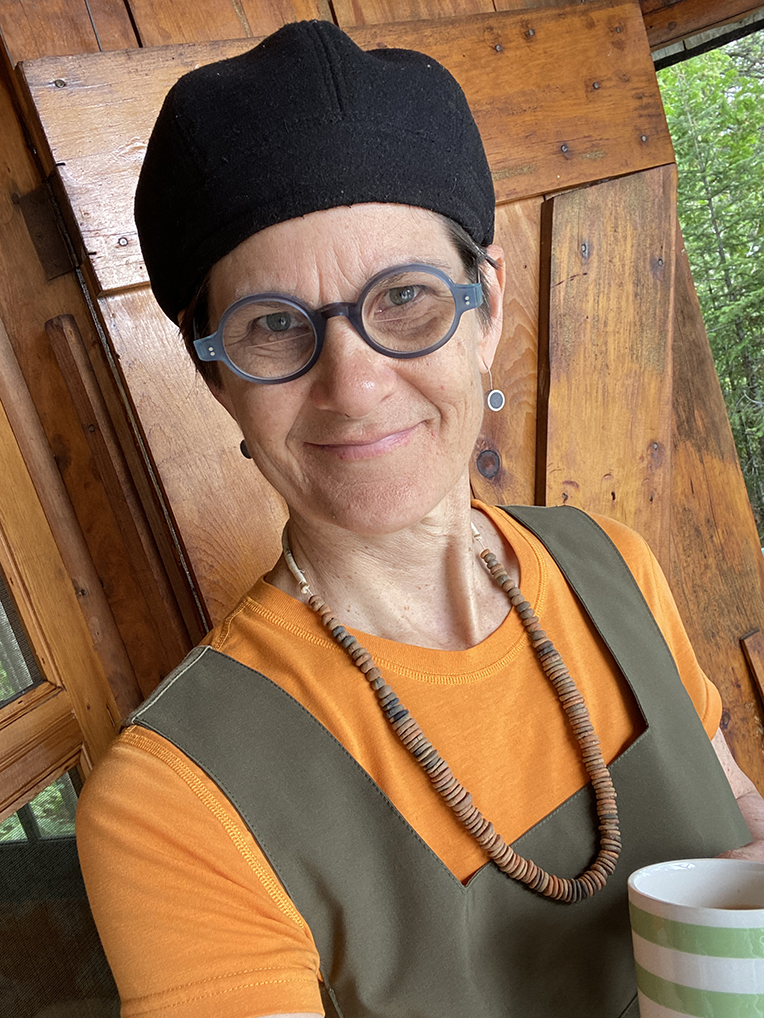
Panya Clark Espinal is a Canadian artist/curator with a diploma in Experimental Art and Sculpture Installation from the Ontario College of Art (1988) and an MFA in Criticism and Curatorial Practice from OCADU (2019). Her 30-year practice as a multi-media artist has explored mechanisms of representation and their influence on perception. She has attempted to bridge a gap between the world as seen in images and that of tangible experience. Through site-specific installations, exhibitions and public commissions, her work has focused on bringing renewed intimacy to the act of looking while raising questions about authenticity, reproduction, and display.
Clark Espinal sees her creative practice as an engagement with memory. Through it she attempts to reconnect or re-member that which has become disconnected or forgotten. Concurrently, she recognizes the power of material engagement to make memory—to manifest a spatial and temporal connection between her physical surroundings and her intellectual, spiritual, and sensual self. For Clark Espinal, acts of making are a form of ancestral and relational maintenance. She sees herself moving toward the past, toward her grandmothers and great grandmothers, while leaving a trail of crumbs for those who are behind her, those who are thought of as the future. Meaning, for her, comes through making and is both contained and uncontainable, embodied and ungraspable, molecular and energetic.
Clark Espinal’s 2019 Master’s thesis, titled Between Stories: The Agency of Story and Living Ways, explored three cultural contexts and the role of story within them. It employed Walter Benjamin’s 1936 essay, The Storyteller: Reflections on the work of Nikolai Leskov, as a primary lens of European origin. In triangulation, Turtle Island Indigenous (Leanne Simpson and Thomas King) and Icelandic (Bergsveinn Birgisson) scholarship were included to consider concurrent conditions of cultural relationship to story. Concepts of living story and grounded normativity were rendered as dynamic conditions of vernacular daily living. Clark Espinal developed her thesis project in collaboration with Elín Agla, a vernacular culture farmer born in Reykjavik and living in Arneshreppur County, a remote region of Iceland where the centuries old (and very storied) ways of life are in dramatic decline. Clark Espinal and Agla co-authored On Whaleroads and Boatmaking and held several events in Toronto to introduce their collaborative work including a Thesis Feast that brought together academics, family, friends, and scholarly peers. Clark Espinal travelled to Iceland four times to visit Arneshreppur and participate in Elín Agla’s community endeavours.
From 2019 to 2021, Clark Espinal joined Wapatah, the Centre for Indigenous Visual Knowledge at OCADU, as a Senior Research Assistant to Gerald McMaster, Tier 1 Canada Research Chair in Indigenous Visual Culture and Curatorial Practice. While there, she assisted with researching and writing Iljuwas Bill Reid: Life and Work and Time Holds All the Answers, an anchor essay published for Postcommodity’s exhibition at Remai Modern in 2021.
Clark Espinal is granddaughter of Paraskeva Clark, an ancestral link (among others) that has had a profound influence on her path. She has employed Paraskeva’s works within her own practice as an artist, has written catalogue entries about Paraskeva’s works, and acts as a steward of Paraskeva’s legacy.
Clark Espinal’s solo exhibitions include the Art Gallery of Ontario, the Canadian Embassy (Tokyo), the McMichael Canadian Art Collection, the National Gallery of Canada, Oakville Galleries, and the Southern Alberta Art Gallery. She has also exhibited in England, Italy, and Spain. As an active producer of public art commissions, she has created pieces for such prominent organizations as the Toronto Transit Commission, City of Mississauga, BMO, Covenant House, and various community institutions in and around Toronto. Her work is included in private and public collections, including the National Gallery of Canada.